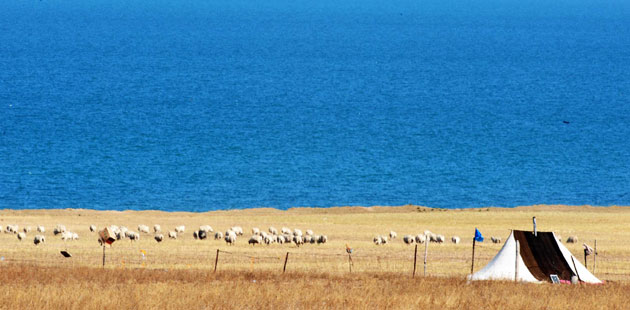Wildlife smuggling becoming rarer but not extinct
Updated: 2011-10-20 07:30
By Zhang Yan, Li Yao and Guo Anfei (China Daily)
|
|||||||||||
![Forest policemen rescue wild turtles in Mangshi, capital of Dehong prefecture, Yunnan province, previously this year. [He Jianying / for China Daily] Wildlife smuggling becoming rarer but not extinct](../../images/attachement/jpg/site1/20111020/0013729e48091009a20b01.JPG) |
|
Forest policemen rescue wild turtles in Mangshi, capital of Dehong prefecture, Yunnan province, previously this year. [He Jianying / for China Daily] |
MANGSHI, Yunnan - Criminals in Yunnan, in southwestern China, still hunt and traffic many black bears and various rare turtles, snakes, monkeys and bird species.
But the number they are killing or capturing in Yunnan has decreased greatly in recent years, according to a senior police officer.
Since 2004, Yunnan province police have investigated 1,500 criminal cases involving the hunting or trafficking of wildlife and, as a result of that work, detained 1,107 suspects, Dong Jianchuan, director of the forest security bureau in the Dehong Dai and Jingpo autonomous prefecture, said in an exclusive interview.
In the first nine months of the year, Dehong authorities investigated 12 such cases, half the number that they had in the same period this past year, according to official statistics from the bureau.
Dong said one reason that cases of illegal hunting and trafficking have become less common is that the Ministry of Public Security began confiscating shotguns in 1995. He also said the ministry has begun to impose tougher penalties on illegal hunters and traffickers and has taken steps to make villagers more aware of the harm done by those who commit those crimes.
Among the precious and rare animals that have been seized from traffickers, the most commonly found have been black bears, pangolins, civets, turtles, snakes, monkeys and various bird species, Dong said.
"The temptation of a huge economic gain, the strong market demand that exists and the low cost of catching (these animals) are the main motives for trafficking," he said, adding that more than 90 percent of the animals found came from Myanmar and were at times transported by Chinese criminals.
Many endangered animals are sold in places on China's coasts, such as Guangdong and Fujian provinces, where they often appear on menus.
Other animals, though, are shipped to inland areas, such as Henan, Hubei, Hunan and Anhui provinces, and their various parts are used in the production of medicinal herbs. Rhino horns, snake bile and pangolin scales are all sought for that purpose. Many times the remaining parts of the animals are then sold to those who make arts and crafts supplies or decorations.
On March 13, Dehong police detained traffickers who were transporting 303 endangered animals, including 82 elongated tortoises and 74 wattle-necked softshell turtles.
The bust came two days after the police had learned that a Myanmar gang had snatched wild animals near Myanmar's border with China. They were preparing to smuggle them into China in an SUV disguised as an emergency vehicle that was ostensibly to be used to respond to an earthquake in Yunnan's Yingjiang county.
The suspect vehicle was stopped in Mangshi, capital of Dehong prefecture, and the driver, whose surname was Song, was detained along with the animals.
A trafficker who identified himself only as Ling said: "In Myanmar, wildlife hunting is rampant because of the country's internal chaos, and there are many professional traffickers who either hire villagers to illegally hunt animals in forests bordering China or collect the animals at black markets."
Yunnan province's dense forests, often found high in the mountains, are home to more than 2,000 species of rare wild animals and plants.
"It's our duty and unshirkable responsibility to protect the environment in Southwest China," Dong said.
He acknowledged, though, that the task is rife with difficulties.
"Our police force is so small," he said. "There are only 200 police officers to defend the entire forest area in Dehong."
And because of the unstable political situation in Myanmar, China has yet to form a pact with the country to combat wildlife trafficking across borders.
Hot Topics
Libya conflict, Gaddafi, Oil spill, Palace Museum scandal, Inflation, Japan's new PM, Trapped miners, Mooncake tax, Weekly photos, Hurricane Irene
Editor's Picks

|

|

|

|

|

|







